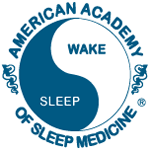 Treatment for obstructive sleep apnea can greatly improve your quality of life, the Sleep Education Blog often reports. A new study from researchers at Henry Ford Hospital shows surgery, like CPAP, can make you feel less sleepy during the daytime.
Treatment for obstructive sleep apnea can greatly improve your quality of life, the Sleep Education Blog often reports. A new study from researchers at Henry Ford Hospital shows surgery, like CPAP, can make you feel less sleepy during the daytime.The study examined the effectiveness of three surgical interventions for sleep disordered breathing – removing excess tissue in the back of the throat, removing the tonsils and using radiofrequency waves to destroy tissue at the base of the tongue.
A group of 40 patients with mild to severe obstructive sleep apnea participated in the study. Before surgery, the patients completed the Epworth Sleepiness Test, a questionnaire that measures daytime sleepiness during various activities. All of the patients had an Epworth Sleepiness Score (ESS) of 10 or higher, meaning they were very sleepy during the day.
After surgery was completed, the patients’ average ESS dropped to 5.5. Nearly all of the patients posted dramatic improvements. Only one patient had no change in score, while two had an increase. Researchers also noted the patients had half as many pauses in breathing while they slept.
Never leave obstructive sleep apnea untreated. It can ruin your quality of life and make you feel constantly tired. Untreated OSA can also lead to other serious health problems, like heart disease or stroke.
Surgery is only one of the effective treatment options for OSA. CPAP, or continuous positive airway pressure, is the mainline treatment for the disorder, however severe. People with less severe OSA cases can also use an oral appliance to prevent the symptoms of OSA.
Photo by Julia Manzerova


 One small lifestyle change can give sleep apnea patients a whole new lease on life. After only a few weeks sleeping with a CPAP machine, the constant
One small lifestyle change can give sleep apnea patients a whole new lease on life. After only a few weeks sleeping with a CPAP machine, the constant 




